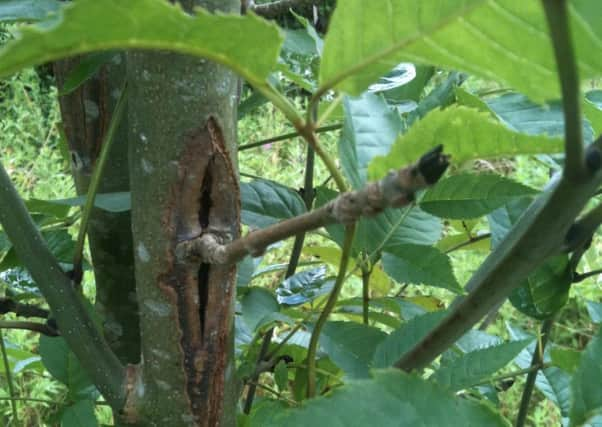Why Ash Dieback eradication is no longer an option


“We have gone beyond eradicating the problem,” confirmed Diane Stevenson, head of policy with DAERA’s plant health division.
“We are now looking at containment measures that will minimise the impact of the disease on Northern Ireland’s ash tree population.”
Advertisement
Advertisement
Stevenson refuted any suggestion that Ash Dieback had the potential to become as serious a problem as that posed by Dutch Elm Disease some 40 years ago.
“In the first instance we acted to remove a lot of young ash trees that had previously been imported from Europe,” she added.
“And this step alone has helped to reduce the impact made by the disease up to this point.”
Stevenson also confirmed that Brexit will force Forest Service, an agency within DAERA, to fundamentally review all of the plant health regulations that relate to Northern Ireland.
Advertisement
Advertisement
“Currently, our legislation is linked to the EU directives that have been agreed over recent years,” she said. “But with Brexit now pending, we have to ensure that all of our plant health measures are fit for purpose and this includes both imports and exports of plant material.”
Stevenson said that the plant health division had a permanent presence in Belfast Port.
“Insects, such as Asian Longhorn Beetle, could be quite easily found in the timber packaging that accompanies steel imports from China. If allowed to escape into our environment, they could cause devastating plant health problems for us. Thankfully, this problem has never arisen. But we can never let down our guard.”
Meanwhile, the Woodland Trust, in partnership with the Forestry Commission, has planted ash trees in trial plots in Suffolk from 14 different parts of the UK, with the aim of identifying ash trees that may be naturally resistant or tolerant of ash dieback. A Trust representative said: “We are working with land managers, local authorities, government agencies and others to increase awareness of ash dieback, and the potentially devastating consequences.
Advertisement
Advertisement
“We are also trialling a number of different responses to ash dieback and other diseases. It is our intention to plant a mix of tree species across the UK, to improve the resilience of our landscape. We will also be working closely with tree nurseries to source and grow UK stock, to most effectively combat the disease.”